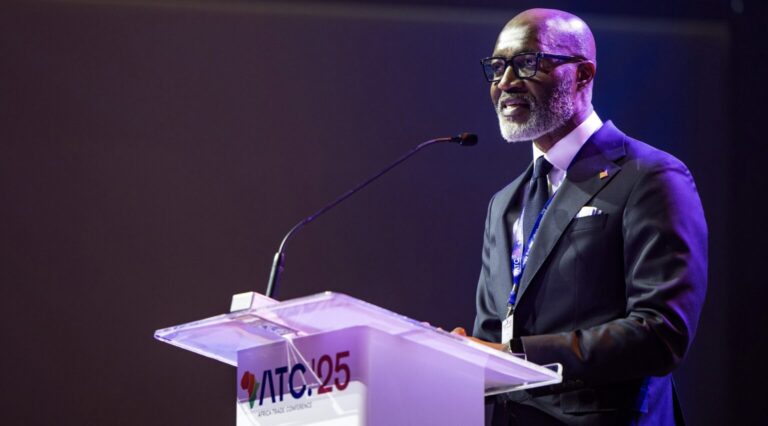Access Bank PLC recently convened top policymakers, business executives, and industry leaders in Cape Town for the inaugural Africa Trade Conference. This high-level gathering addressed the evolving global trade landscape, emphasizing Africa’s need to strengthen regional cooperation and develop robust financial and trade infrastructure to drive sustainable growth.
Africa Must Take Control of Its Economic Destiny
In his keynote address, Roosevelt Ogbonna, Managing Director/CEO of Access Bank PLC, stressed the urgency of Africa taking charge of its economic future. He highlighted the increasing fragmentation of global trade, with rising nationalist policies and supply chain disruptions disproportionately affecting the continent. These challenges, he noted, present an opportunity for Africa to deepen its trade networks, empower local businesses, and build the resilience needed to compete on a global scale.
However, for this vision to become a reality, critical structural barriers must be addressed.
The Challenge of Access to Capital
One of the most pressing issues Ogbonna identified is the difficulty African businesses face in securing capital. While many enterprises have the ambition to scale, the high cost of financing often stifles their growth.
“Many businesses struggle to access capital, and when they do, the cost is so high that it becomes nearly impossible to grow competitively,” Ogbonna remarked. “We need a financial services sector that truly empowers businesses—one that makes capital more accessible and affordable for entrepreneurs to innovate, expand, and scale beyond local boundaries.”
He further called for the creation of a network of African financial giants willing to develop homegrown financial solutions to support the continent’s economic objectives.
Bridging the Market Intelligence Gap
Beyond financial constraints, limited access to reliable market intelligence remains a major hurdle for African businesses. Many lack the necessary insights to identify trade opportunities beyond their local markets, hindering their ability to expand.
Ogbonna emphasized the role of technology in bridging this gap. By leveraging digital platforms and data-sharing solutions, businesses can gain critical insights, make informed decisions, and unlock new growth opportunities across Africa.
Strengthening Trust and Trade Infrastructure
Another key barrier to intra-African trade is the lack of trust among trading partners, often fueled by inconsistent regulations and varying standards across countries. Ogbonna stressed that overcoming this challenge requires deliberate efforts to harmonize standards, foster collaboration, and shift perceptions regarding the quality of African-made goods and services.
He also pointed out the urgent need to modernize Africa’s trade infrastructure. Despite the continent’s historical trade corridors that once connected Africa to the Middle East and Asia, today’s inefficient transport networks and regulatory bottlenecks make it easier for some African nations to trade with European partners than with their neighboring countries.
“It’s unacceptable that businesses in Angola find it easier to trade with Portugal than with Nigeria or South Africa,” Ogbonna noted. “We must rebuild the infrastructure and regulatory frameworks necessary to facilitate seamless intra-African trade.”
A Call to Action for Africa’s Economic Future
Closing his address, Ogbonna challenged stakeholders—governments, financial institutions, and businesses—to take concrete steps toward realizing Africa’s economic potential. He urged them to leverage platforms like the Africa Trade Conference to drive real change.
“Let’s collectively commit to creating value by working together—governments, financial institutions, and businesses—using our collective power to build an Africa we can all be proud of,” he said.
Building Africa’s Trade Ecosystem
The Access Bank Africa Trade Conference marks a significant step in fostering dialogue, forming strategic partnerships, and shaping policies that drive Africa’s economic transformation. As the continent navigates global uncertainties, events like this serve as a reminder that Africa’s future depends on collaboration, innovation, and the development of a sustainable trade ecosystem that benefits all.

